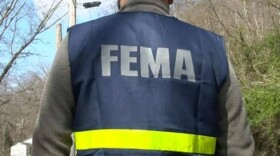The main agency tasked with distributing U.S. foreign aid — USAID — is facing renewed scrutiny by the Trump administration, which has suggested it could drastically overhaul or even shutter the organization.
Here's what to know about the agency.
What is USAID?
Created in 1961 by President John F. Kennedy, the U.S. Agency for International Development emerged from an effort to separate military and non-military assistance and revamp how the U.S. distributed foreign aid.
Kennedy argued that the U.S., as the wealthiest country on Earth, had a moral and financial obligation to provide foreign aid. It was also politically advantageous to the U.S. to fund projects in poorer countries, he said, to try to prevent the collapse of "existing political and social structures which would inevitably invite the advance of totalitarianism."
In 1971, at the height of the Vietnam War, the Senate rejected a foreign aid bill, in part over growing concerns that foreign assistance wasn't helping U.S. interests abroad. Congress later refocused U.S. foreign aid efforts on projects designed to tackle specific issues, such as agriculture, family planning and education.
Still, in the decades since, some lawmakers and public officials have continued to question USAID's effectiveness and accountability as an independent agency.
What does it do?
USAID provides humanitarian assistance during global conflicts and other emergencies. It funds efforts to promote public health, improve education and protect human rights. It also works to further U.S. interests abroad.
The country that received the most USAID funding during the 2023 fiscal year was Ukraine during its ongoing war with Russia, according to a report by the Congressional Research Service using the most recent complete data available. The agency has also sent humanitarian aid to Gaza during the war between Israel and Hamas, and allocates funds to counter China's influence in the world.
Other top recipients of USAID assistance in that fiscal year included Ethiopia, Jordan, the Democratic Republic of Congo, Somalia and Yemen.
An archived post on USAID's website, which vanished in recent days, said the agency responds to an average of 75 humanitarian crises each year, and has recently provided support during ongoing emergencies in Haiti as well as countries in Africa and the Middle East.
Other issues the agency has been working on include food security, climate change and global health. Experts have noted that a key component of USAID's work is preventing disease outbreaks and epidemics from reaching the U.S.
The recent decision to freeze the agency's activities is already having ramifications abroad. NPR reported that work has stopped on the reconstruction of 10 flood-damaged police stations in Pakistan and a project that secretly provides education to girls in Taliban-controlled Afghanistan could shut down.
How much does it cost?
In the 2023 fiscal year, USAID managed a roughly $40 billion budget. (That represents less than 1% of the total federal budget of $6.1 trillion the same year.) It provided aid to about 130 countries that year.
Though other U.S. departments and agencies distribute foreign aid, USAID has doled out the bulk of international assistance for more than half a century. It has over 10,000 employees, about two-thirds of whom work abroad.
Projects funded by USAID are typically implemented by U.S. or foreign nongovernmental and international organizations, nonprofit and for-profit contractors, universities or foreign governments.
The White House and Senate proposed a plan during Trump's first term to overhaul the agency, including giving the State Department control over U.S. humanitarian aid.
Copyright 2025 NPR








